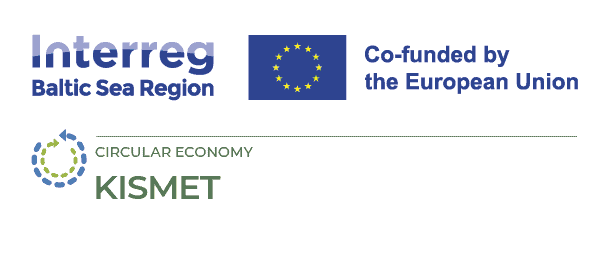
The development of a food strategy in Vidzeme region (Latvia) has begun
07 July 2023
| As part of the KISMET project, the partner Vidzeme Planning Region (VPR) is part of one of eight Local Innovation Partnerships, which will all implement piloting activities to improve the food system. VPR will develop a regional food strategy and upgrade the sustainability efforts within the district. Along with the European Green Deal policy initiative, as well as the Farm to Fork strategy developed within it, Vidzeme Planning Region also puts more and more emphasis on activities and projects that promote the implementation and development of new, more sustainable food systems in the region. The Latvian Food Bioeconomy Cluster, which is an associate partner within KISMET, plays an important role in these processes as it will support the regional pilot in Vidzeme by defining the lacking knowledge, resources, and cooperation elements. Knowing the needs/problems of their members, the cluster will be one of the key players in matchmaking of available/needed resources and connect the LIP to the essential stakeholders. It will also distribute the information about the pilot activities among its members, participating in educational activities, benchmarking visits, bringing expertise to region which is lacking and adapting in their production.
Additionally, Vidzeme Planning Region is currently also implementing the CITIES2030 project, funded by the European Union’ s Horizon 2020 research and innovation support program. CITIES2030 (2020-2024) aims at securing healthy and sustainable food value chains, protecting and preserving natural resources, enhancing circularity and local food belts, developing food skills, culture and heritage. Approaches for improved resilience and sustainability in cities and regions through CITIES2030 will help KISMET to go further with transforming the food system towards ultra-sustainable modes of operation. Thanks to the cooperation and discussions with local government, food and agricultural companies, industry experts, it has been possible to find out the main problems in the creation of short food supply chains. They are mostly related to public catering procurement, general awareness of the importance and role of sustainable food in the local economy and public health. Therefore, within the framework of the KISMET project, the education of certain target groups about sustainable food will be carried out, while promoting the demand for it. For example, training on developing menus for public kitchens, how to include seasonal food products as much as possible, how to ensure the necessary nutritional value by diversifying products, is planned. On the other hand, to promote the supply of sustainable food, cooperation between the parties involved in the food system will be developed, offering new knowledge on the creation of short food supply chains and the production of innovative products. When actualising these issues and involving more and more interested parties in discussions and actions regarding the development of new agricultural and food industry models, the need for a regional food strategy is highlighted which also helps in developing sustainable food systems in the Vidzeme region and its municipalities. This need will be addressed with the help of the KISMET project by developing a food strategy for Vidzeme, including data and evidence-based recommendations for the implementation of the Farm to Fork strategy. |







